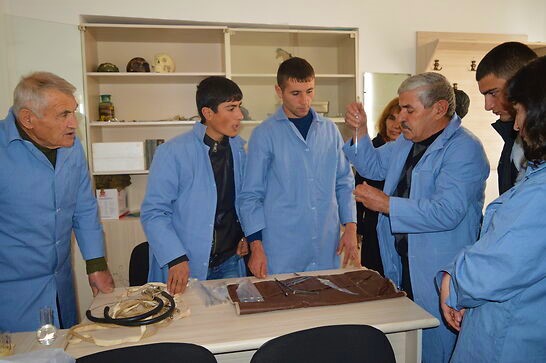Modernizing Vocational Education and Training in Agriculture in Armenia (MAVETA) project started on December 3, 2021, with a preparatory phase that has been successfully completed in August 2022. The 1st main phase of implementation started afterwards, which will last until August 2025. The 2nd main phase will start in 2026 and last until 2030.
Modernizing Vocational Education and Training in Agriculture in Armenia (MAVETA) project improves the knowledge and skills of professionals and students in agriculture and related fields. Furthermore, it supports the development of the legal and institutional framework for dual professional education. Thus, it contributes to sustainable, climate friendly, inclusive growth, increased incomes and enhanced (self)-employment in rural Armenia.
MAVETA works to anchor dual education approach at the political and institutional level: policies shall become more coherent, educational institutions more effective, and a cooperation between the public and the private sector shall be well established. On the ground, the project works with Goris State Agricultural College, Sisian branch of ANAU (Syunik), Stepanavan State Agricultural College (Lori), Berd Multifunctional State College (Tavush), Echmiadzin Craftsman State School (Armavir) and Yerevan branch of ANAU.
The selected professions within MAVETA project include Veterinary Specialist, Milk and Dairy Technologist, Farmer, Agricultural Machinery, Milk Farm Manager, Orchard Workers / Nut and Fruit Farmers.
The MAVETA project is funded by a broad coalition of international and local organizations led by the Swiss Agency for Development and Cooperation (SDC), including the Austrian Development Agency, the German Ministry for Economic Cooperation and Development (BMZ), the Government of Armenia, the Swiss Church Aid (HEKS/EPER) NGO, Izmirlian Foundation, the Strategic Development Agency (SDA) NGO and Vanand Agro CJSC.
The project’s implementing partners are the GIZ and HEKS/EPER with the involvement of SDA and the School of Agricultural, Forest and Food Sciences at the Bern University of Applied Sciences (HAFL).






